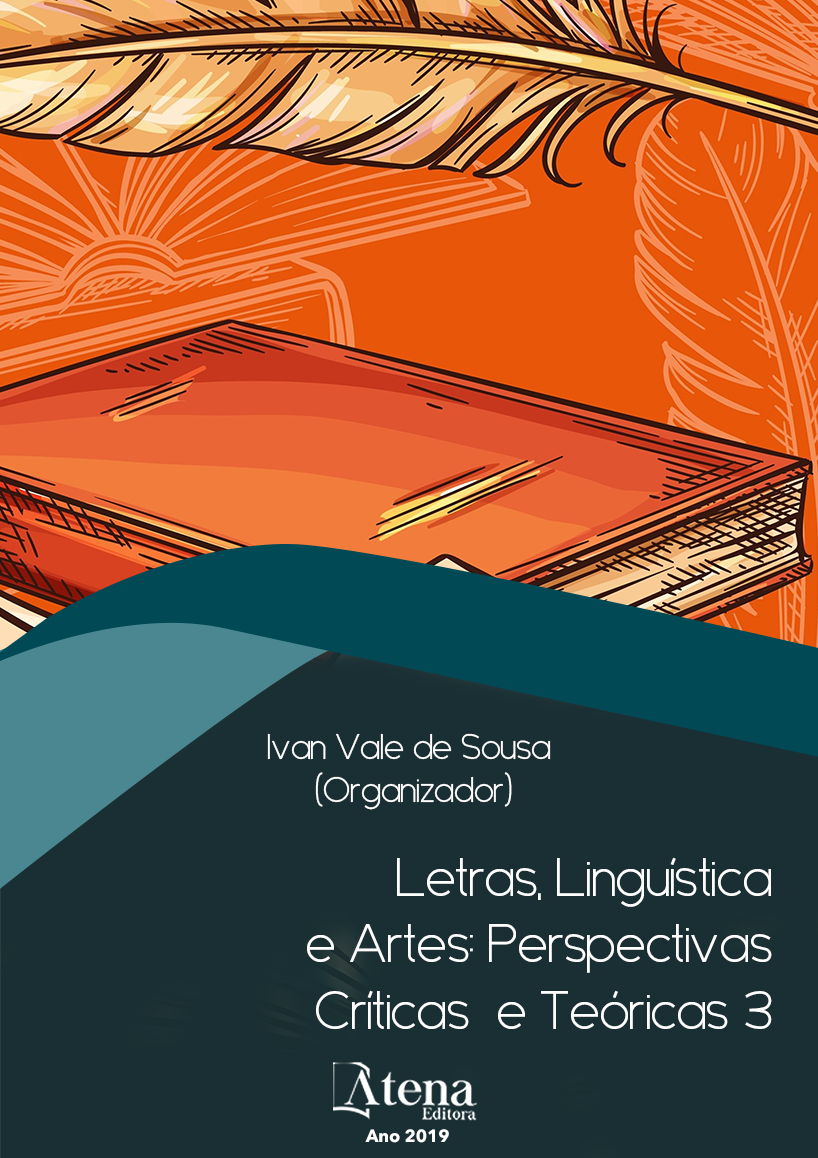
EDUCAÇÃO E PODER: O PAPEL DO INTÉRPRETE DE LINGUA BRASILEIRA DE SINAIS NAS DISPUTAS SIMBÓLICAS PELA DEFINIÇÃO DE SURDEZ
Na visão de Pierre Bourdie, a escola
é um instrumento excludente de perpetuação
das diferenças e reprodução de desigualdades,
através do poder simbólico: a capacidade de
constituir pela enunciação, de fazer ver e fazer
crer. Esta pesquisa pretende analisar o papel
do tradutor-intérprete de Lingua Brasileira de
Sinais (TILS) nas disputas simbólicas sobre
a definição de surdez que ocorrem no âmbito
educacional. O trabalho foi baseado nas obras
de Arroyo(2012), Bourdieu (1975, 1989),
Foucault (2013), Hauser et al. (2010), Perlin
(2006), Sá (2006), Sassaki (1997), Skliar
(1997), Strobel (2006) e Wrigley (1996). A
concepção acerca da surdez - clínico-patológica
ou socioantropológica - determina a forma com
que surgem e são efetivadas as metodologias
de ensino. A forma com que o tradutor entende,
eticamente, seu trabalho, irá influenciar no ato
da tradução. Portanto, o intérprete é mediador
da cultura, língua, políticas e identidade surda.
Neste sentido, a função do TILS vai além da mera
transcrição de palavras, adentrando o campo
das relações poder e disputas simbólicas. Na
visão de Pierre Bourdie, a sociedade legitima
a exclusão e o fracasso escolar com base em
um falso discurso de meritrocacia da educação.
Conclui-se que, para o surdo, a disputa simbólica
consiste em exigir o respeito da sua cultura e
lutar por uma educação adequada. O intérprete
precisa ser neutro no ato da tradução, mas não
em relação aos embates simbólicos e disputas
de poder, devendo agir em prol da real inclusão
de pessoas Surdas.
EDUCAÇÃO E PODER: O PAPEL DO INTÉRPRETE DE LINGUA BRASILEIRA DE SINAIS NAS DISPUTAS SIMBÓLICAS PELA DEFINIÇÃO DE SURDEZ
-
DOI: 10.22533/at.ed.05519091023
-
Palavras-chave: poder simbólico, educação, surdez, intérprete de LIBRAS.
-
Keywords: symbolic power, education, deafness, sign language interpreter
-
Abstract:
In Pierre Bourdie’s view, school
is an excluding instrument of perpetuating
differences and reproducing inequalities through
symbolic power: the ability to constitute by
enunciation, to make see and to make believe.
This research intends to analyze the role of the
sign language translator( TILS) in the symbolic
contest about the definition of deafness that
occur in the educational scope. The research
was based on the works of Arroyo (2012),
Bourdieu (1975, 1989), Foucault (2013), Hauser
et al. (2006), Sá (2006), Sassaki (1997), Skliar
(1997), Strobel (2006) and Wrigley (1996). The
conception about deafness - clinical-pathological
or socioanthropological - determines the way in which the teaching methodologies
arise and are take effect. The way in which the translator ethically understands his work
will influence the act of translation. Therefore, the interpreter is a mediator of culture,
language, politics and deaf identity. In this sense, the function of TILS goes beyond
the mere transcription of words, entering the field of power relations and symbolic
contests. In Pierre Bourdie’s view, society legitimizes school exclusion and failure on
the basis of a false merit of education. It is concluded that, for the deaf, the symbolic
contest consists in demanding respect for their culture and striving for an adequate
education. The interpreter must be neutral in the act of translation, but not in relation to
the symbolic clashes and disputes of power, and must act for the real inclusion of Deaf
people.
-
Número de páginas: 15
- Elder Freitas Cunha


